Being trialled in the Isle of Wight, the NHS coronavirus app is seen as a key plank of the government’s effort to ease the UK out of lockdown.
The app, developed by NHSX, the health service’s technology arm, uses bluetooth to log when other people come into close contact with the user for a sustained period of time.
If someone develops coronavirus symptoms, they log it on the app, which then alerts those who have been in close proximity with the infected person that they may be at risk.
Download the new Independent Premium app
Sharing the full story, not just the headlines
The app forms part of the government’s “test, track and trace” programme, which aims to keep the virus at bay as the strict lockdown measures are slowly lifted.
An army of 18,000 contract tracers are also being recruited, who will track down everyone that an infected person may have had contact with by speaking to their friends, family and colleagues.
These people may be advised to self isolate or to order coronavirus test kits to use at home.
The contract tracers will work alongside the app, which will be able to pick up contacts that are more difficult to pinpoint, such as people the infected person may have met on public transport or in the streets.
Matt Hancock, the health secretary, promised earlier this week that the contact tracing app will be widely available by “mid-May” but concerns have been raised over whether the government will meet this self-imposed target.
On Friday, Northern Ireland secretary Brandon Lewis also admitted that only 1,500 contact tracers have been hired so far out of the promised 18,000.
The Independent understands ministers are also considering whether to roll out the app regionally, depending on the lessons learned from the first phase on the Isle of Wight.
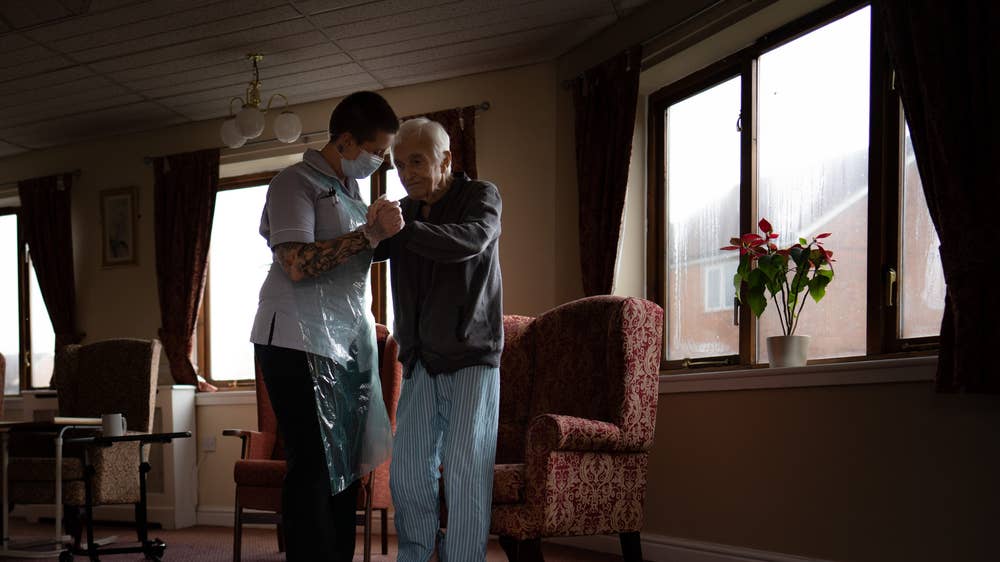
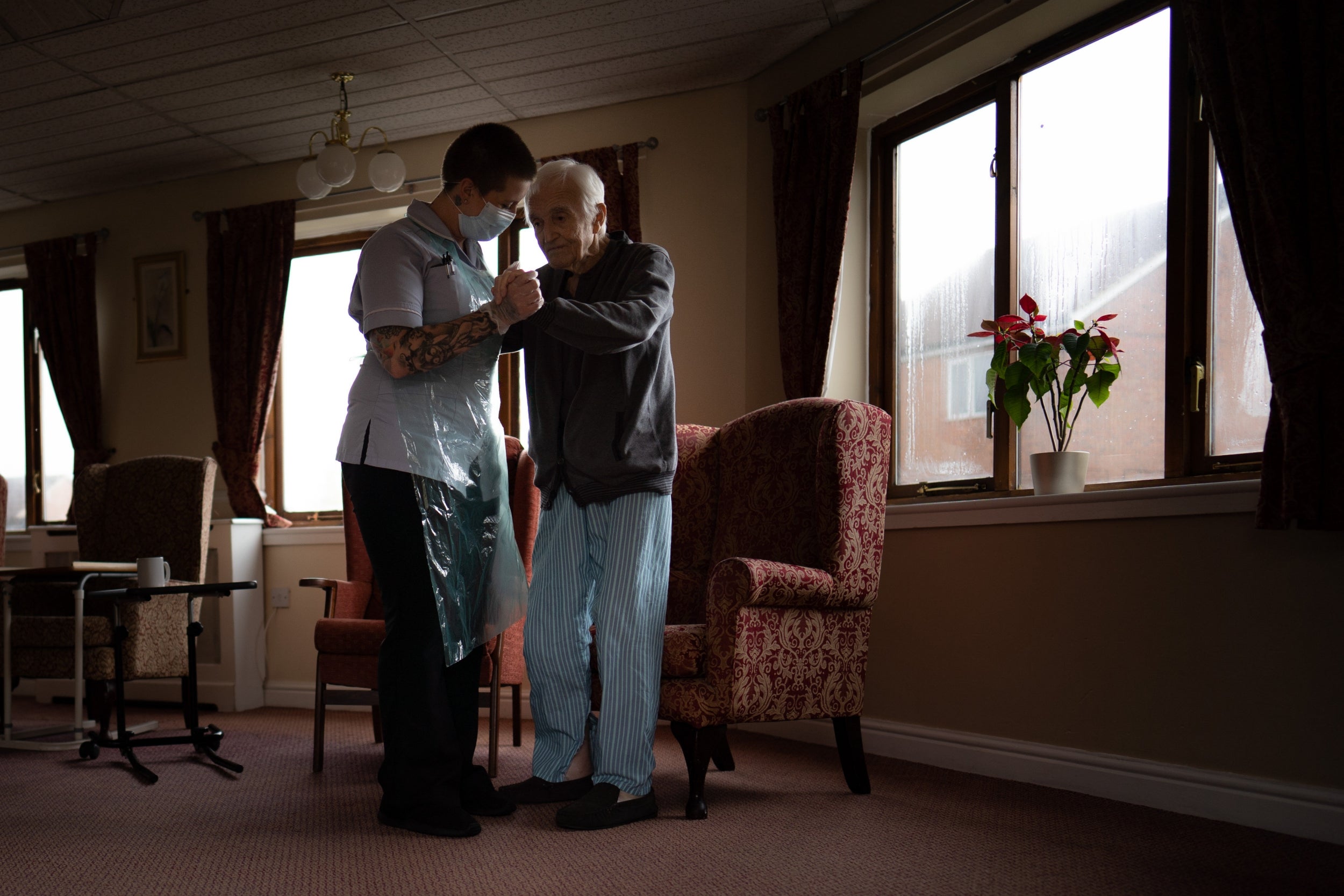
1/18
Jack Dodsley, 79, with a carer in PPE at Newfield Nursing Home
Tom Maddick/SWNS
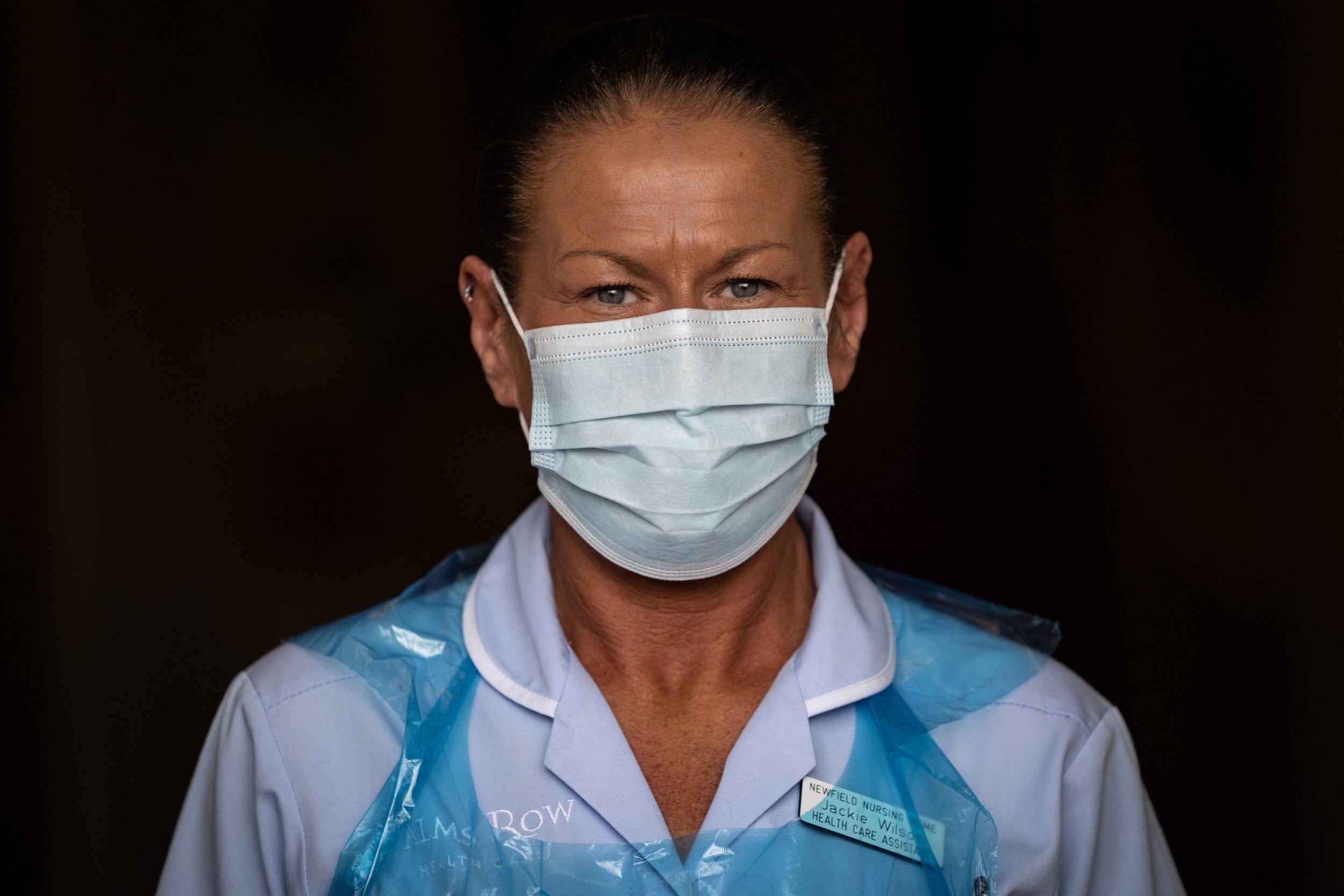
2/18
Jackie Wilson, a healthcare assistant, wearing PPE before going into rooms
Tom Maddick/SWNS
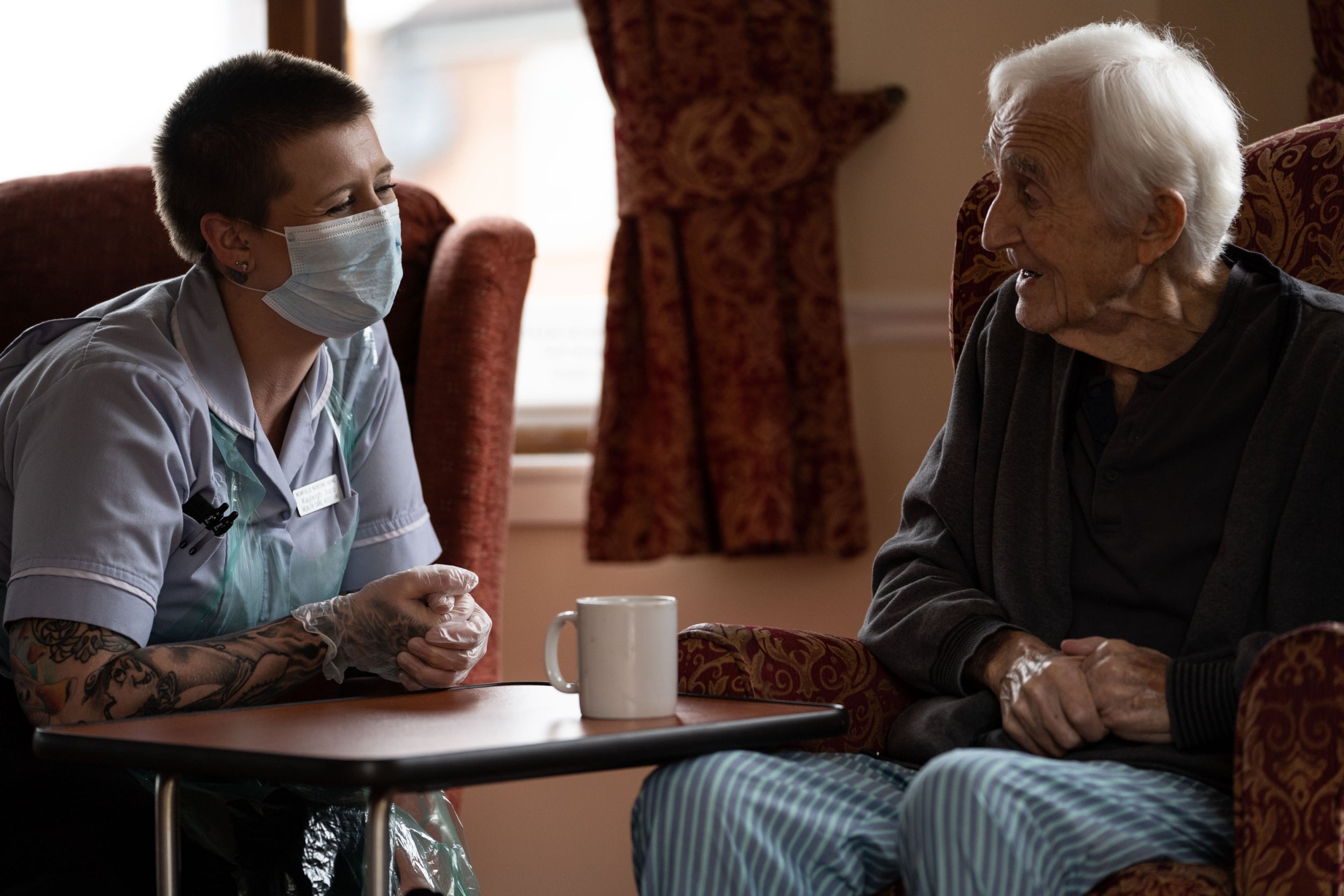
3/18
Jack Dodsley, 79, speaks to a carer at Newfield Nursing Home
Tom Maddick/SWNS
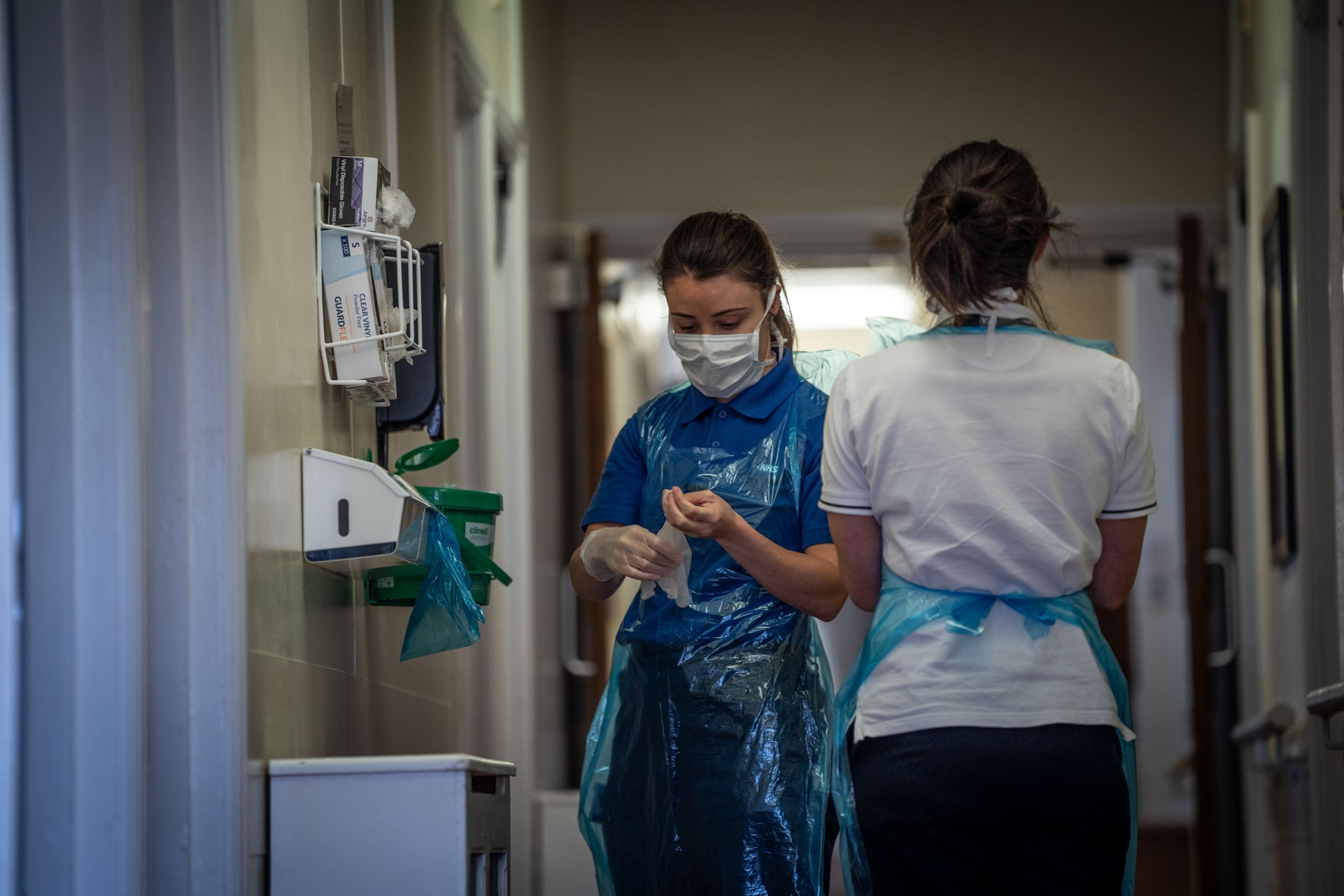
4/18
Carers working at Newfield Nursing Home
Tom Maddick/SWNS
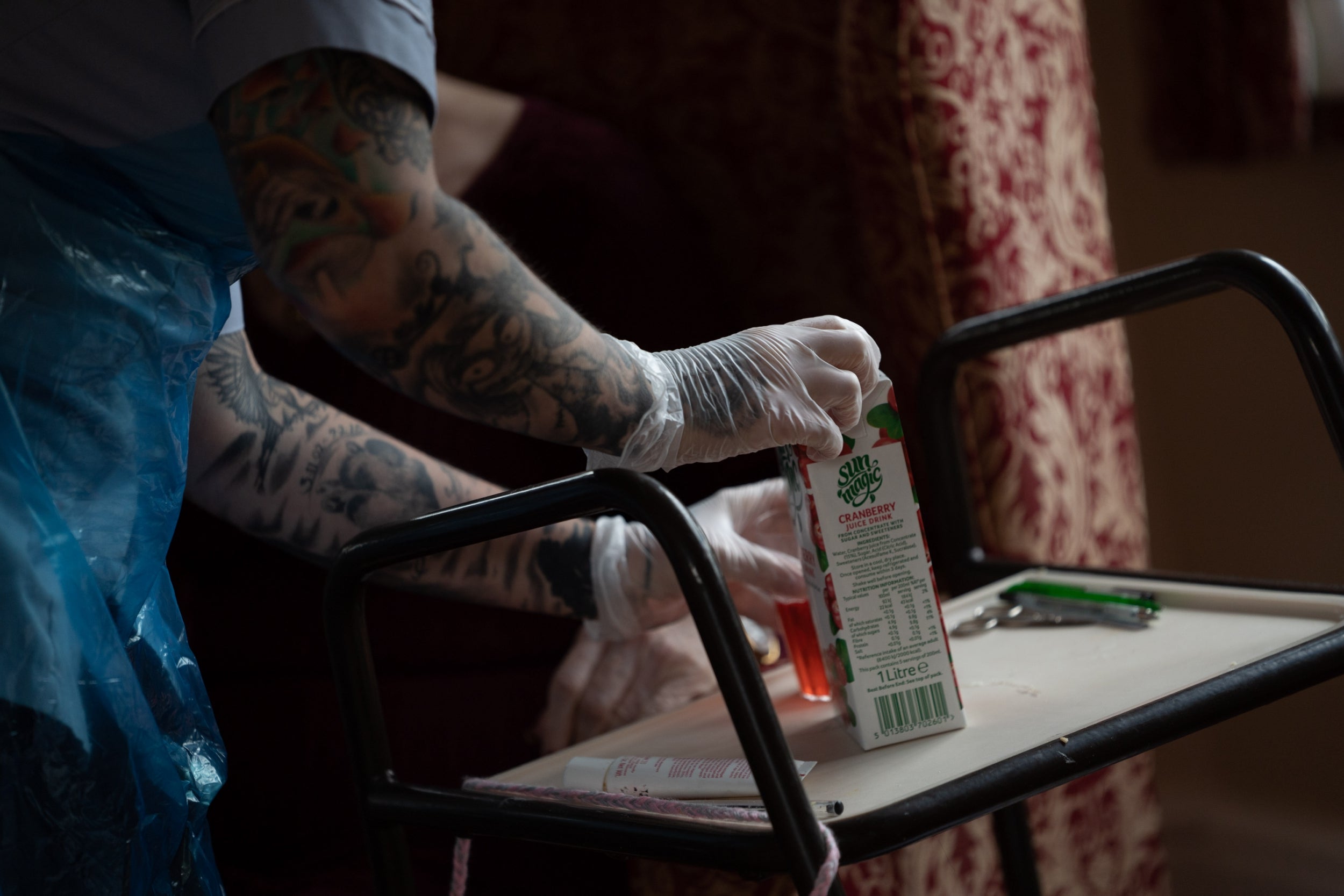
5/18
A care worker wearing PPE opens a drink carton
Tom Maddick/SWNS
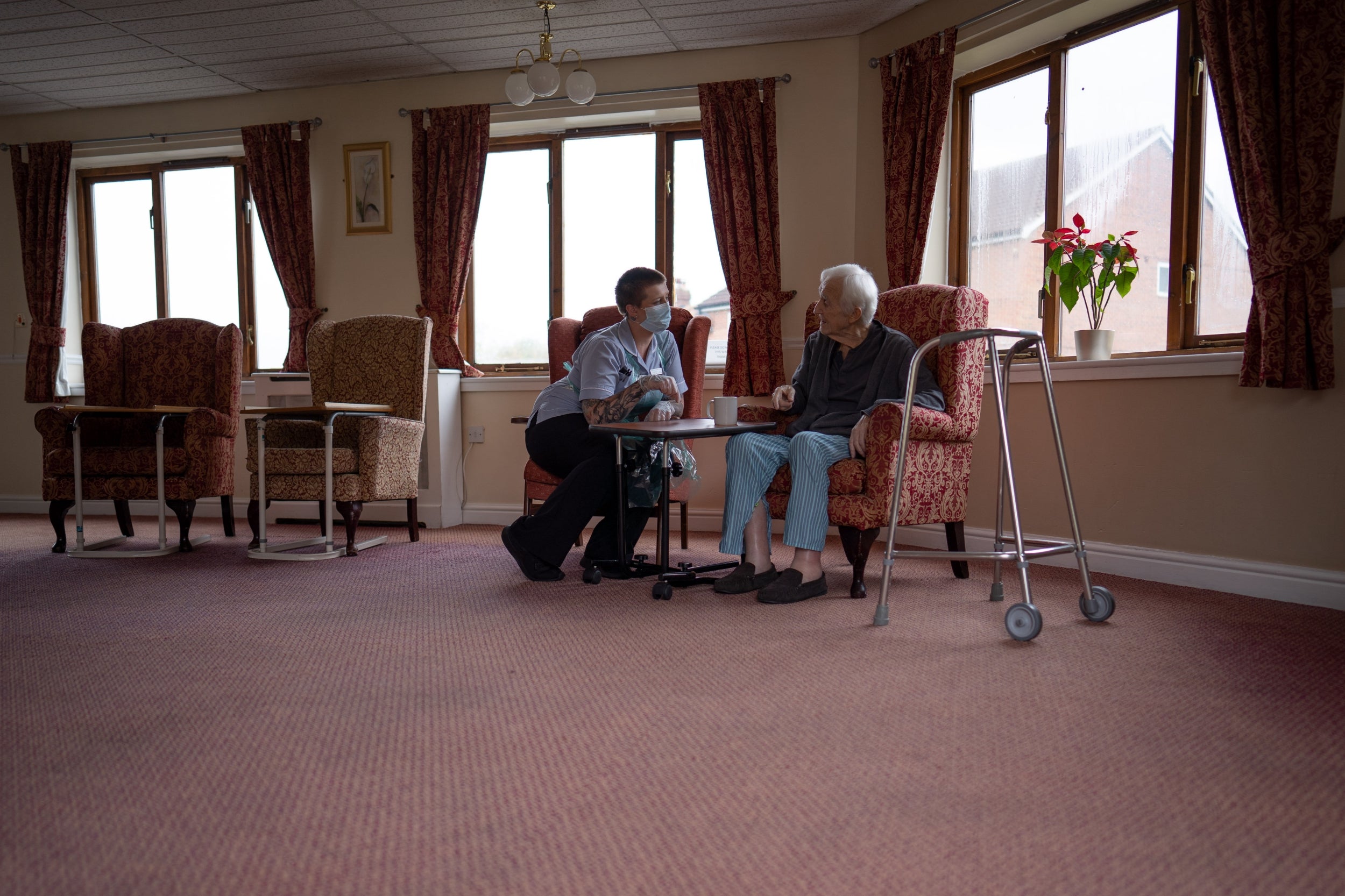
6/18
Jack Dodsley, 79, sits with a carer
Tom Maddick/SWNS
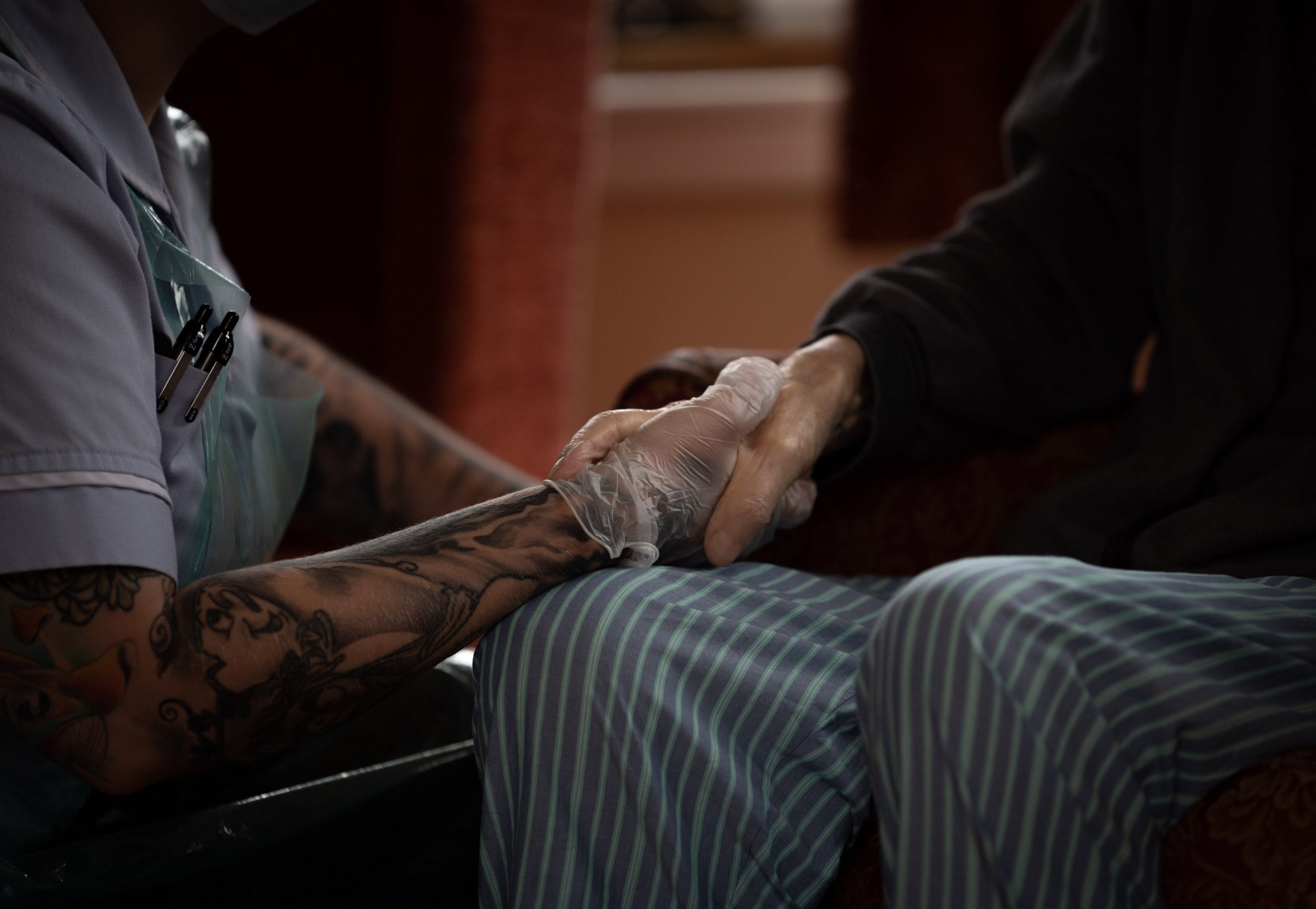
7/18
Jack Dodsley, 79, with a carer in PPE
Tom Maddick/SWNS
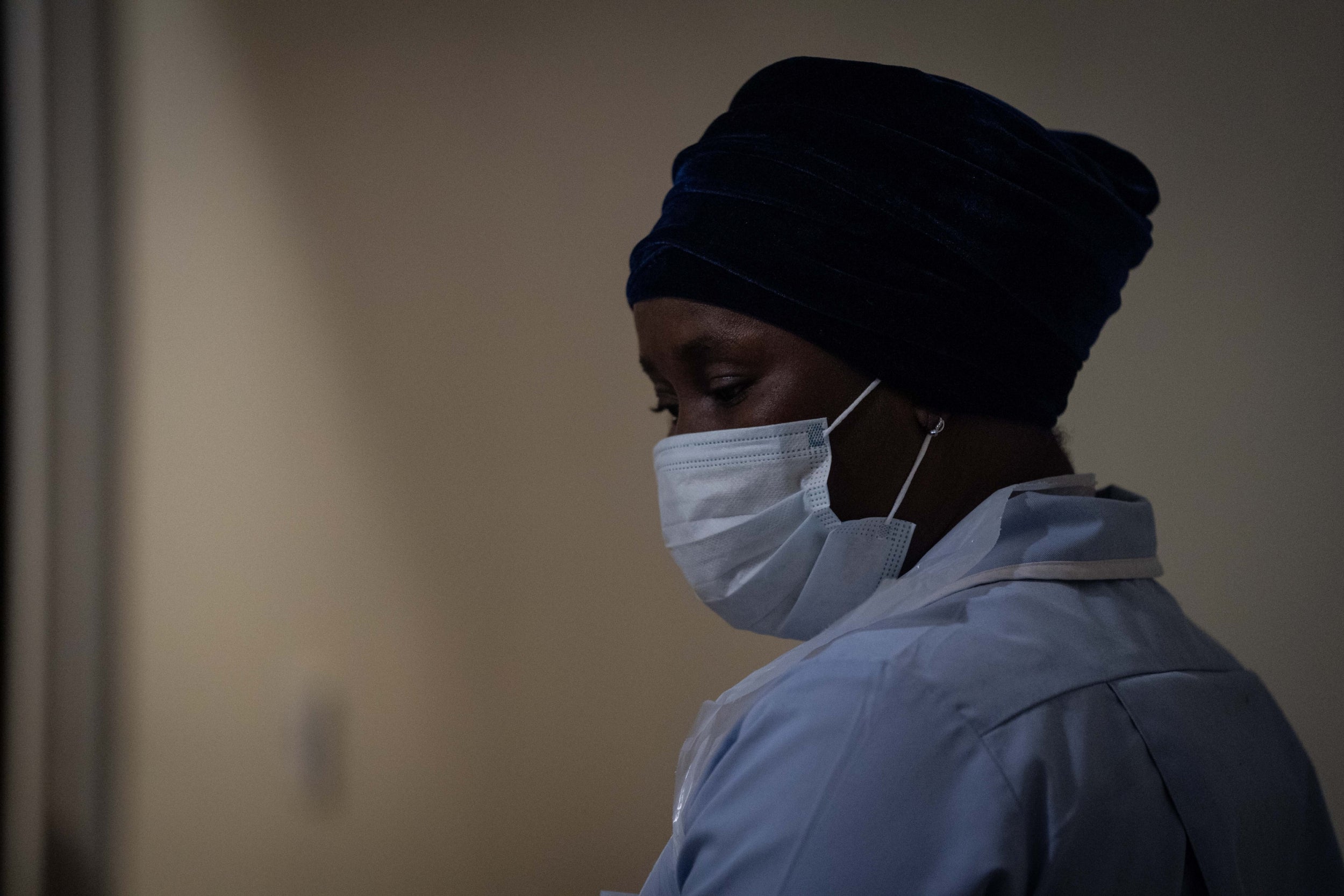
8/18
A care staff member wearing PPE
Tom Maddick/SWNS
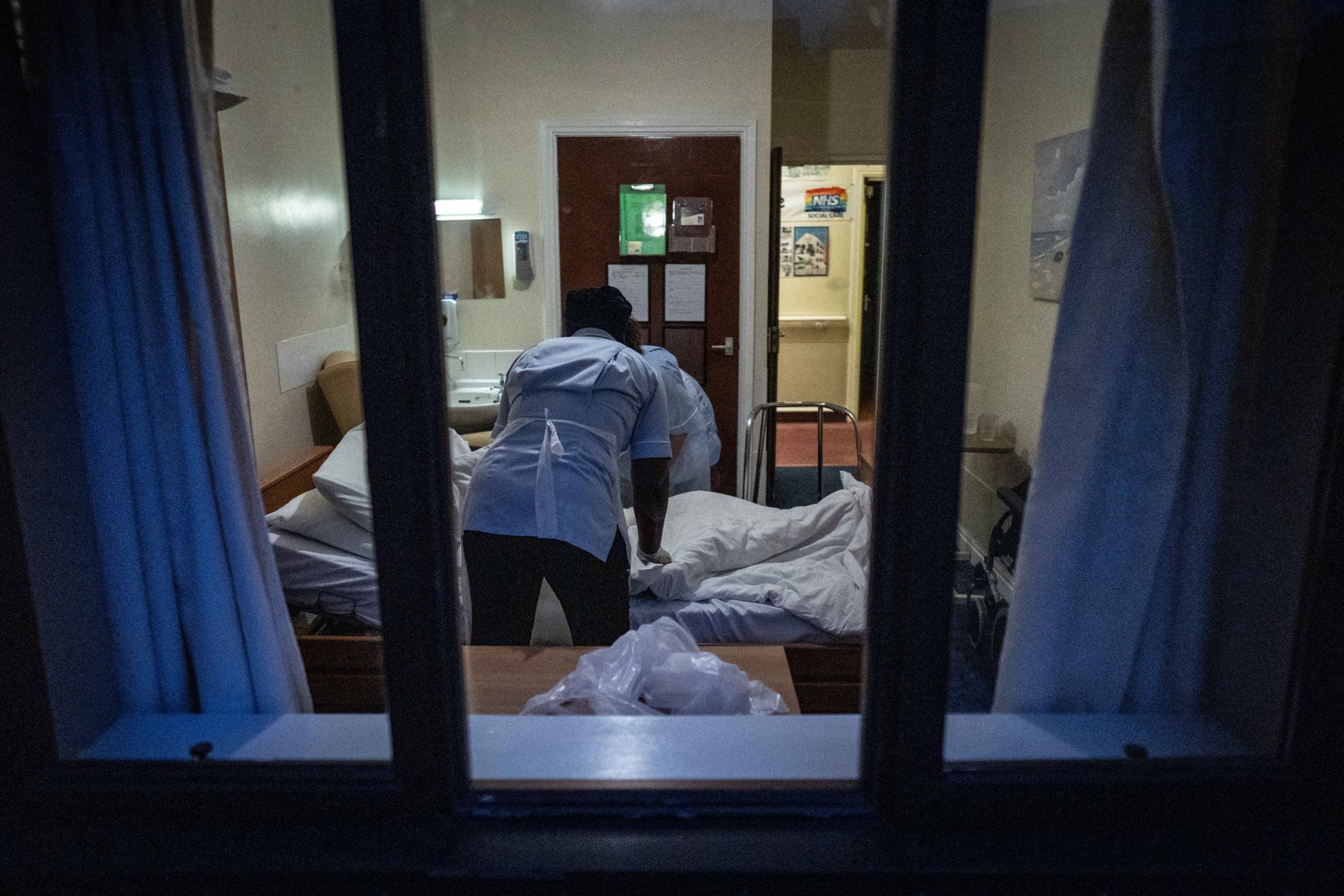
9/18
A staff member at Newfield Nursing Home looks after a resident
SWNS
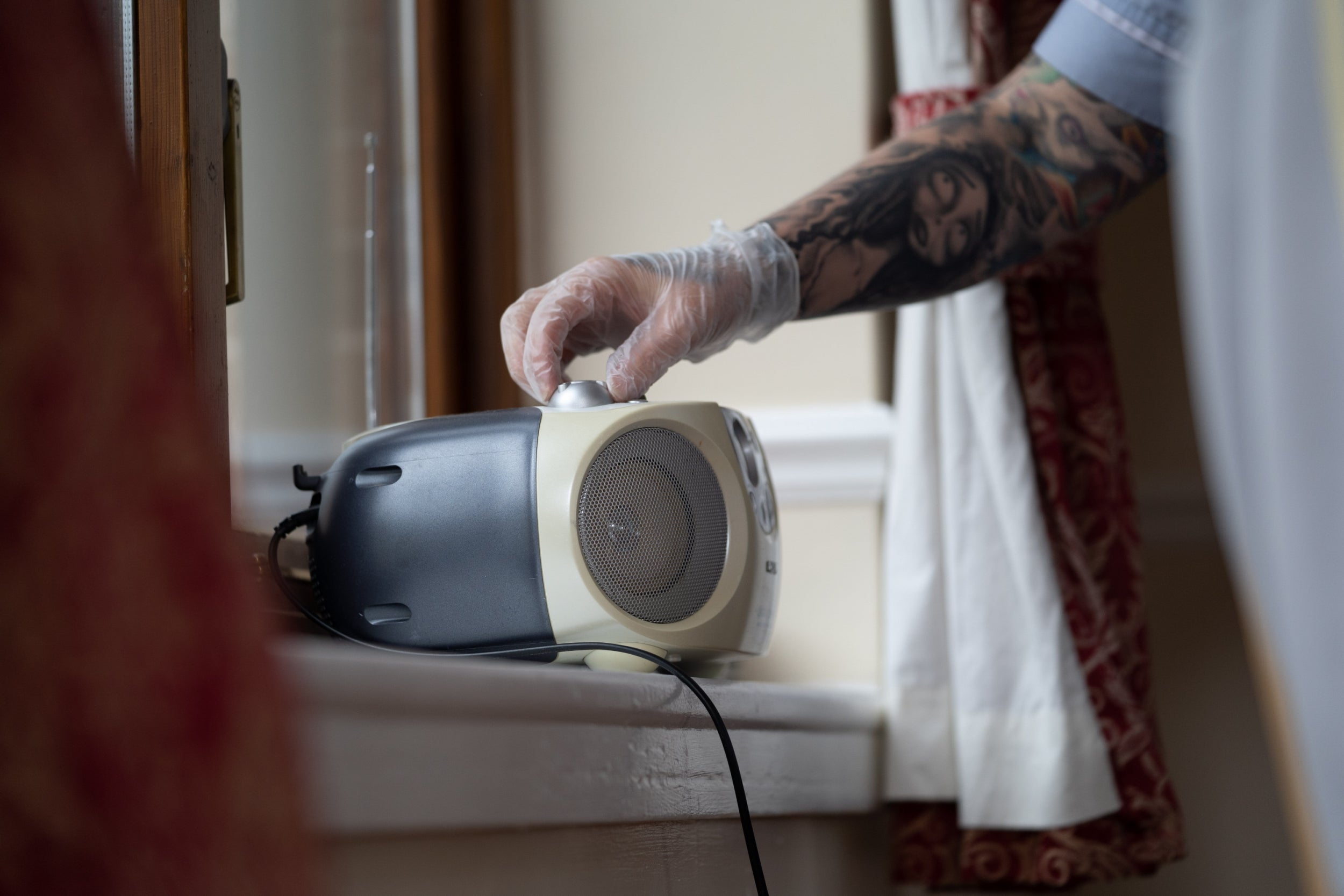
10/18
A carer wearing PPE uses a speaker
Tom Maddick/SWNS
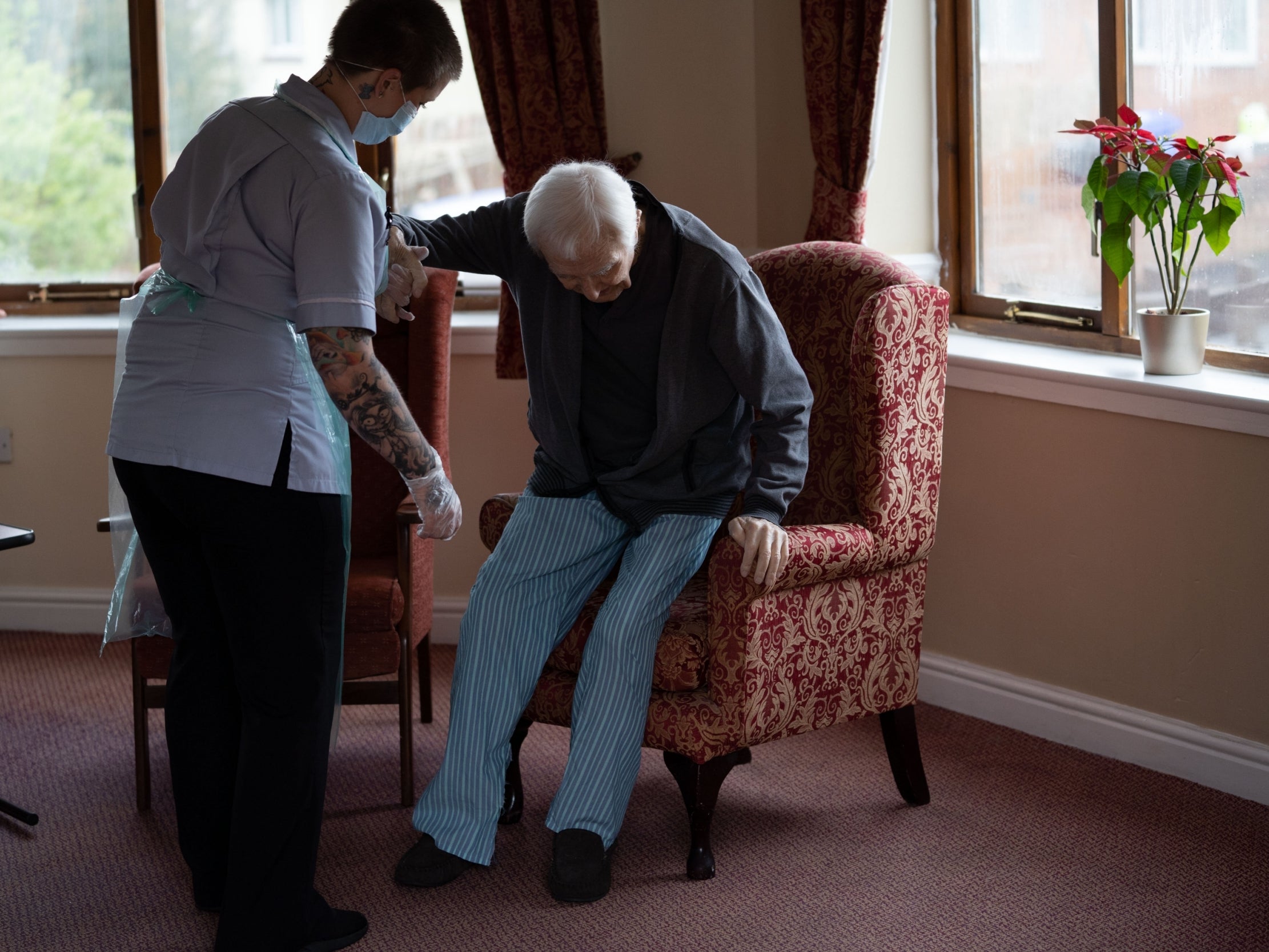
11/18
A carer helps Jack Dodsley, 79, from his chair
Tom Maddick/SWNS
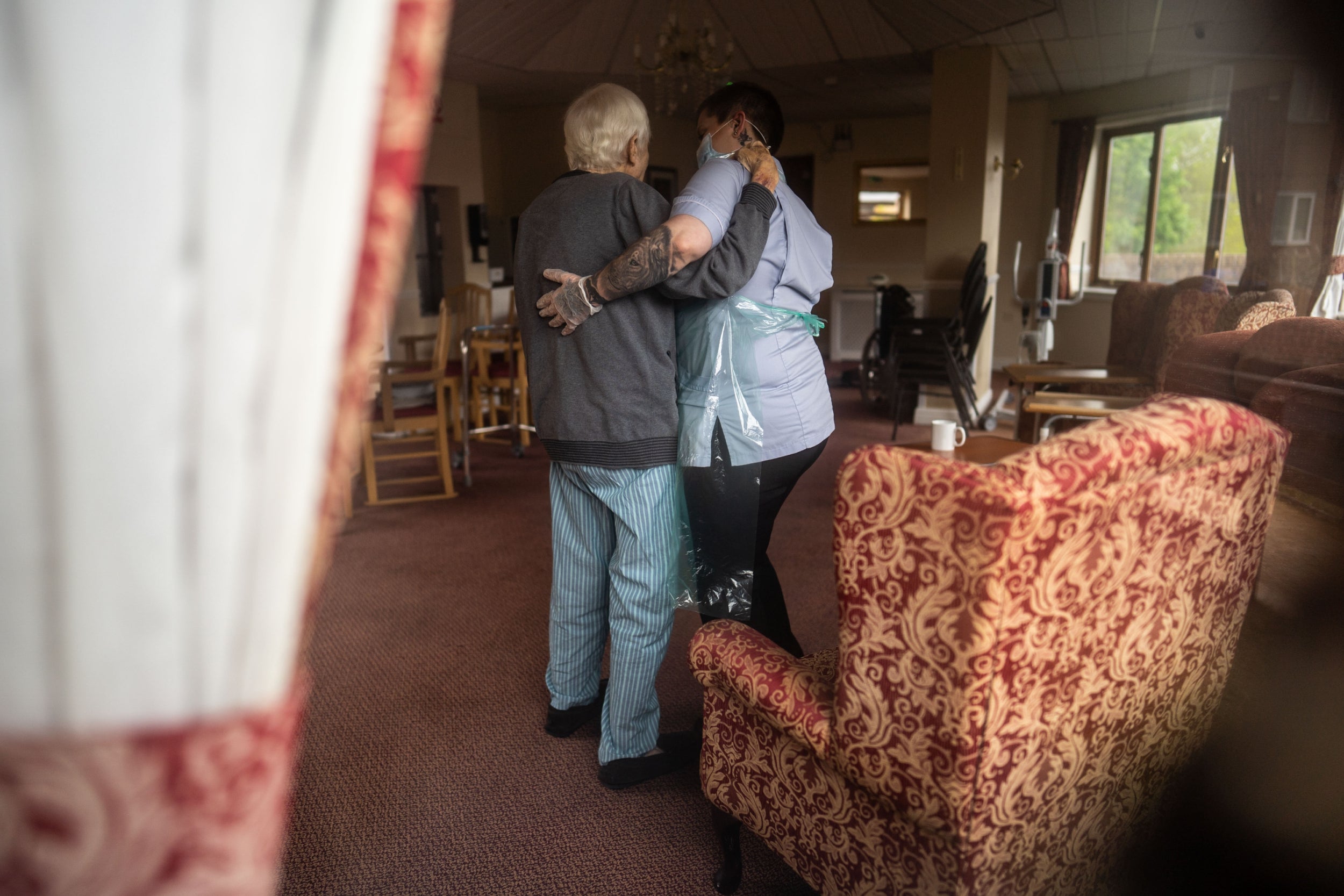
12/18
A carer wearing PPE helps Jack Dodsley, 79
Tom Maddick/SWNS
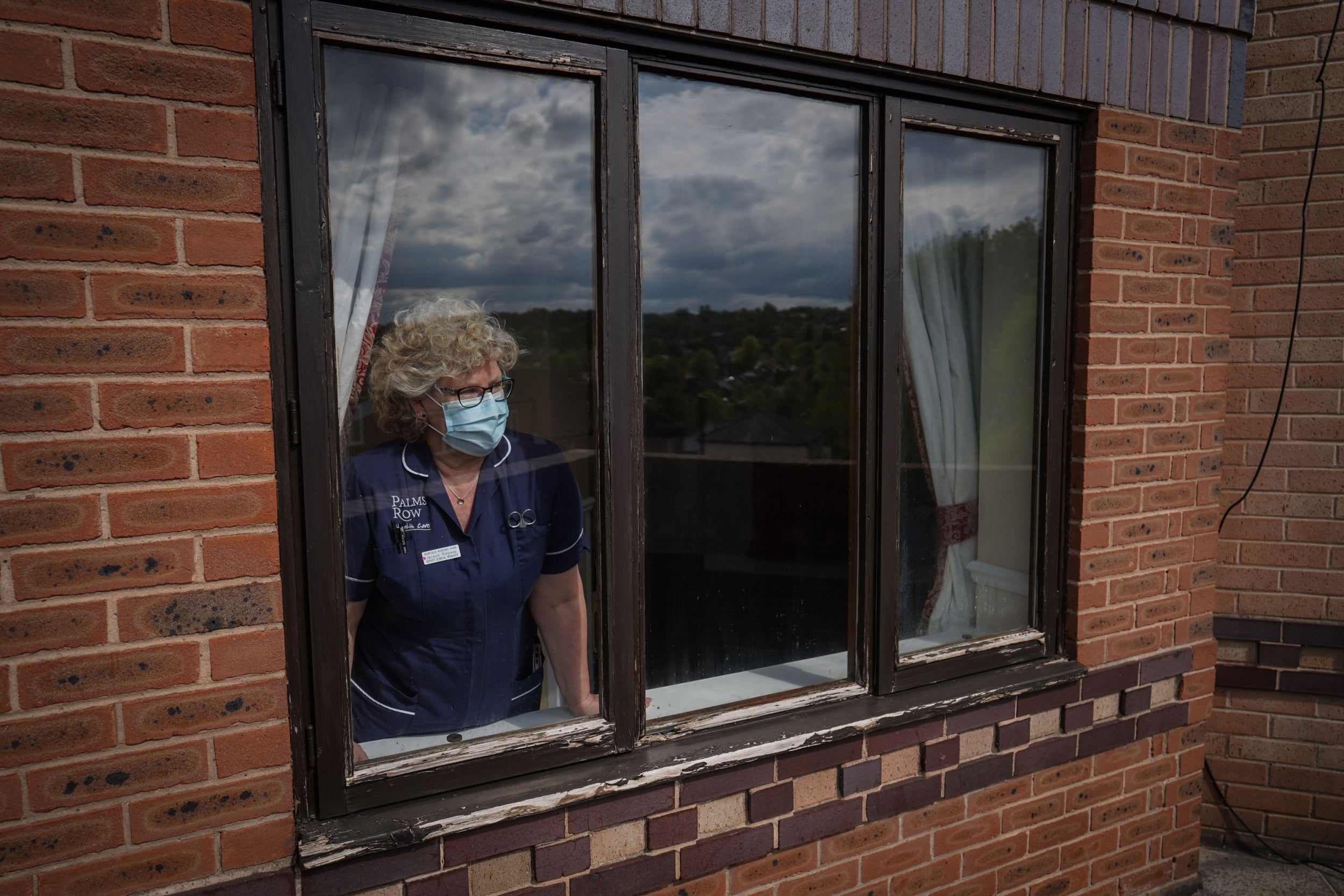
13/18
A staff member at Newfield Nursing Home
Tom Maddick/SWNS
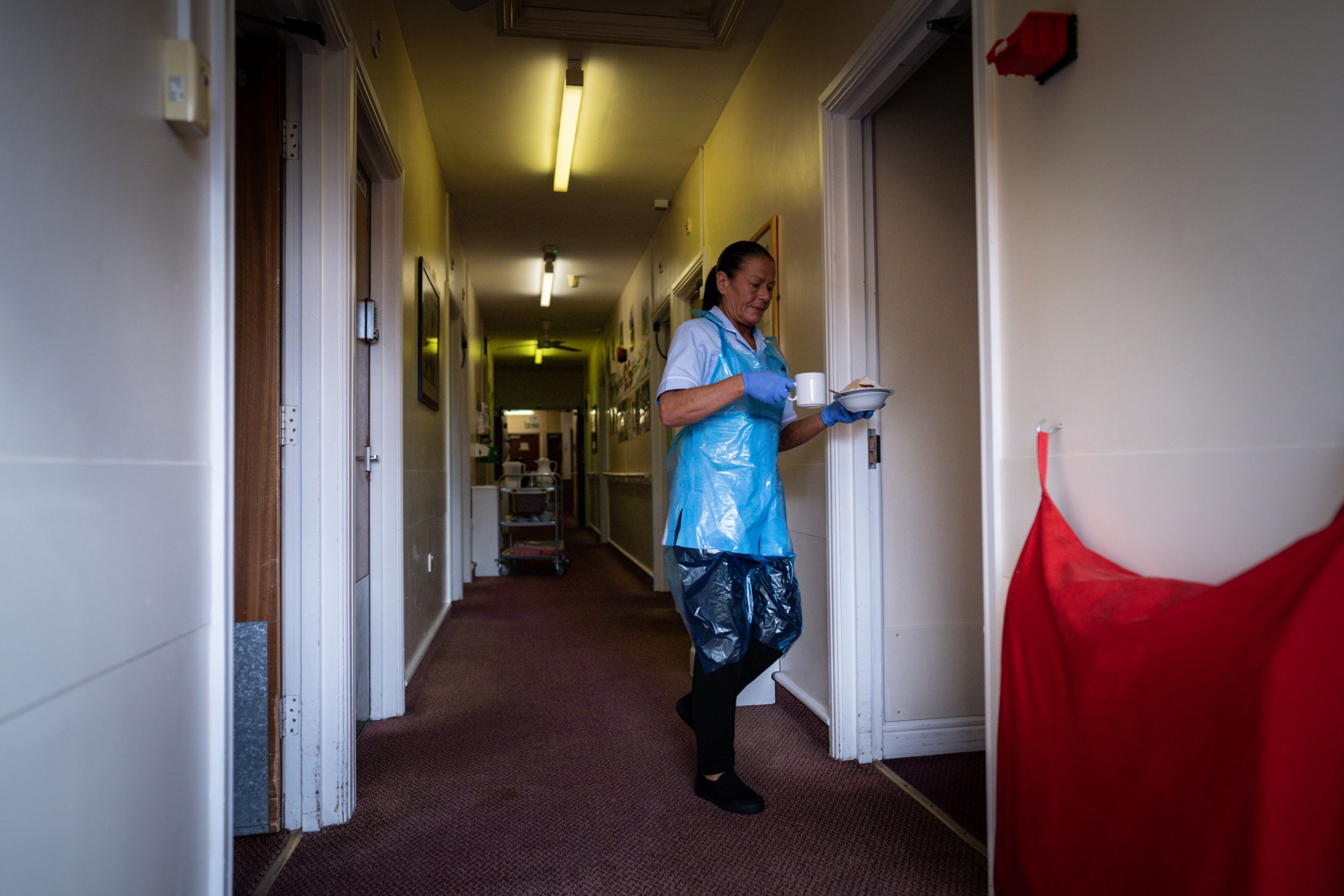
14/18
A carer brings food to a resident at Newfield Nursing Home
Tom Maddick/SWNS
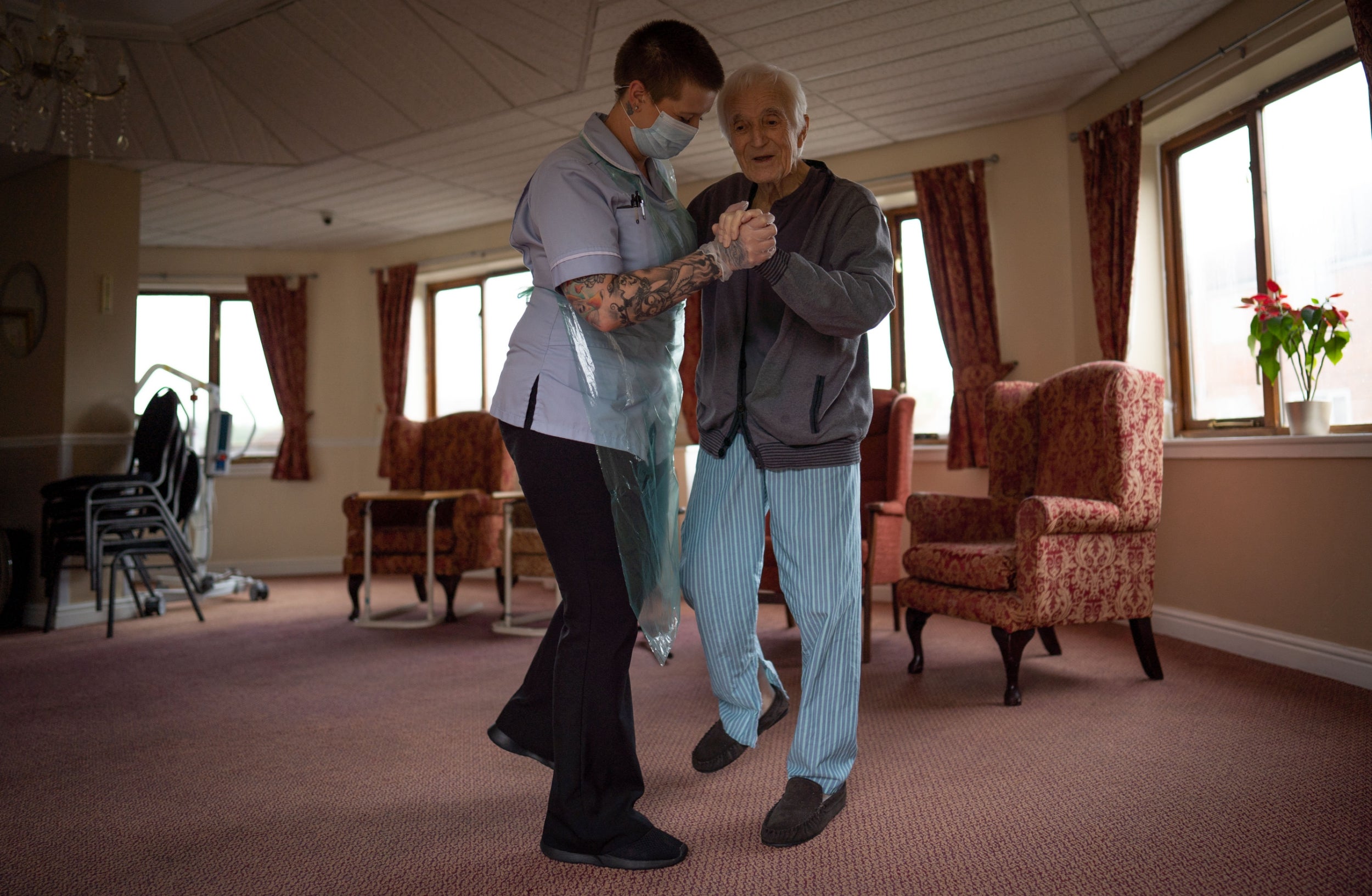
15/18
Jack Dodsley, 79, with a carer in PPE
Tom Maddick/SWNS
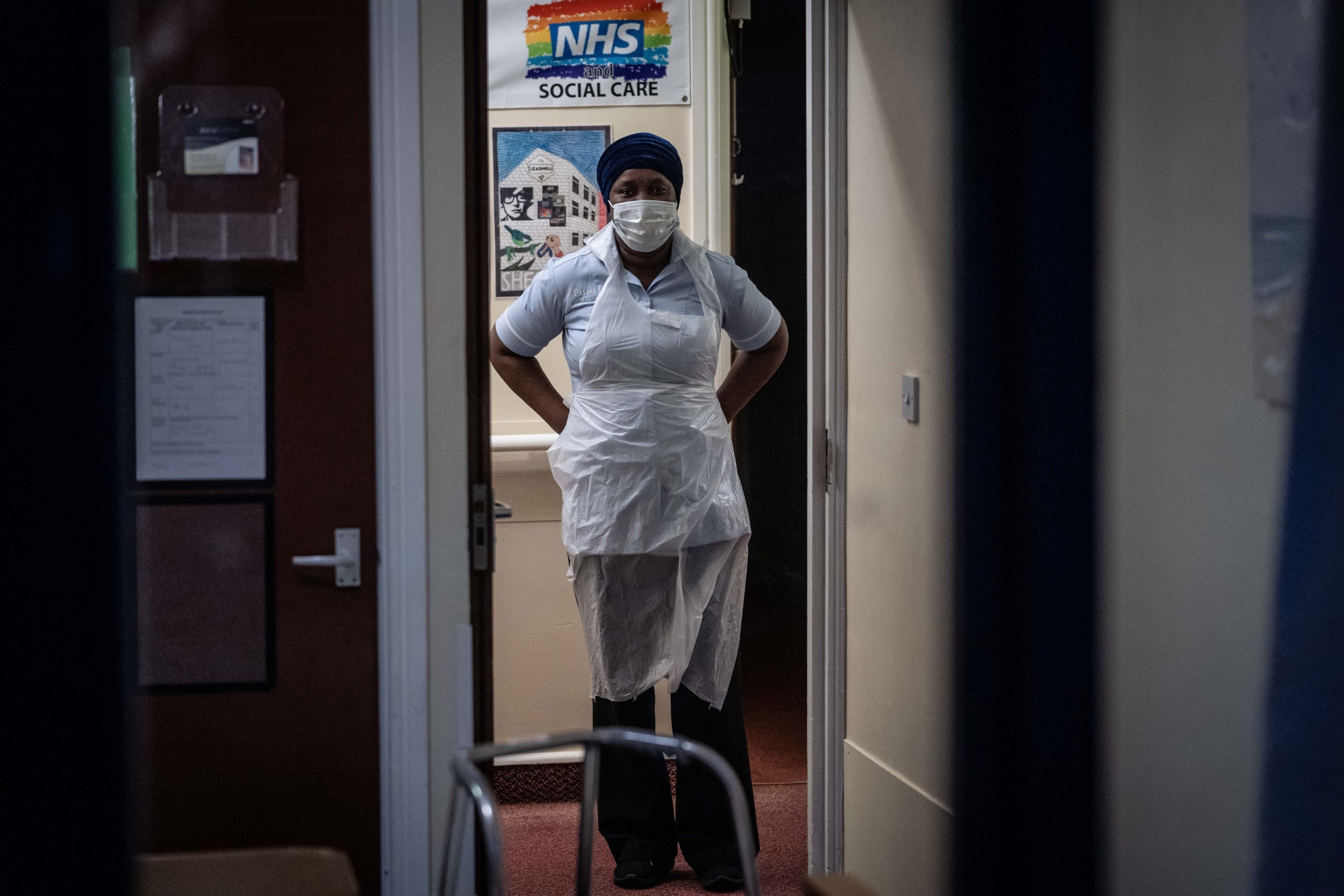
16/18
A staff member puts on PPE at Newfield Nursing Home
Tom Maddick/SWNS
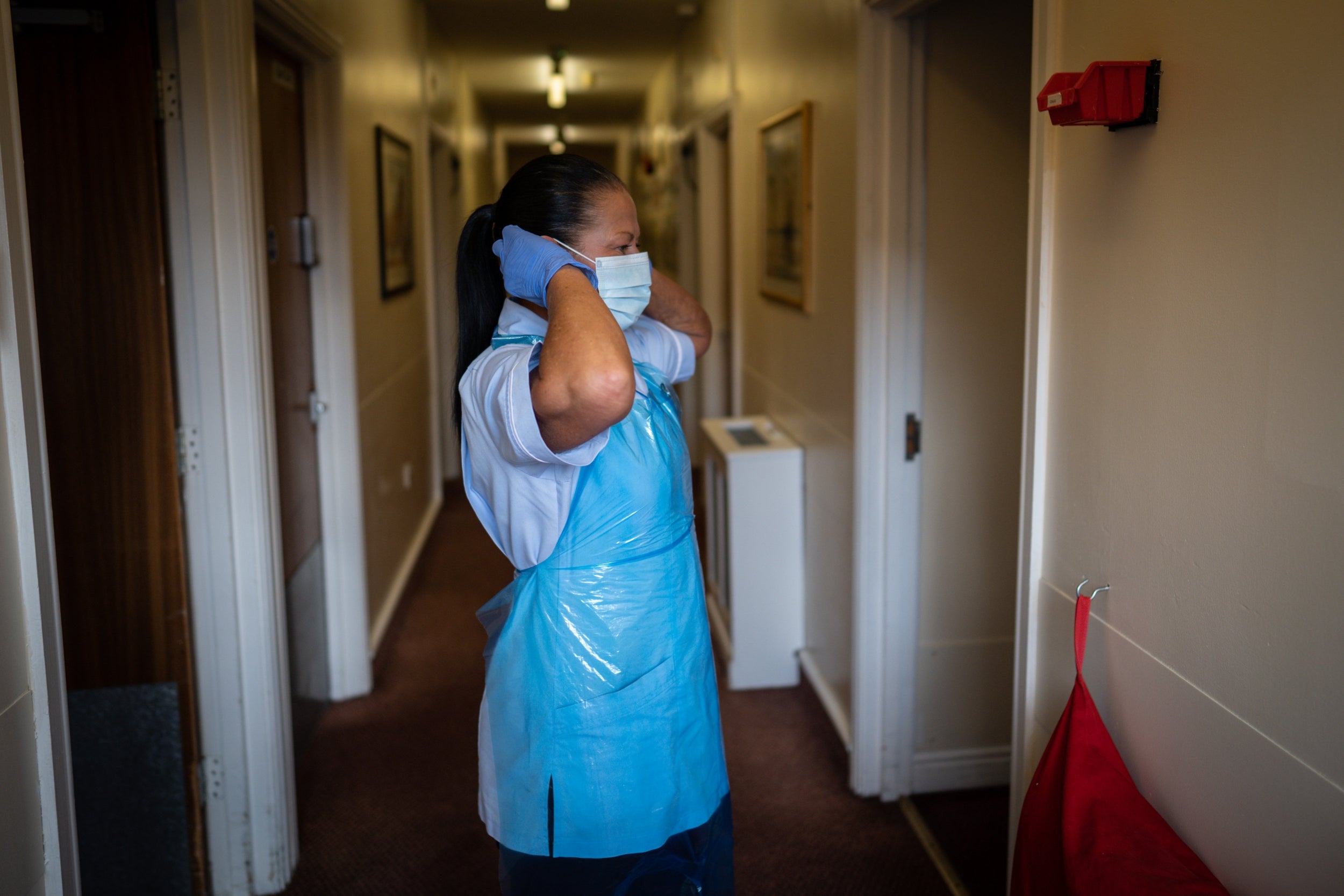
17/18
Jackie Wilson, a healthcare assistant, puts on PPE before she enters a room
SWNS
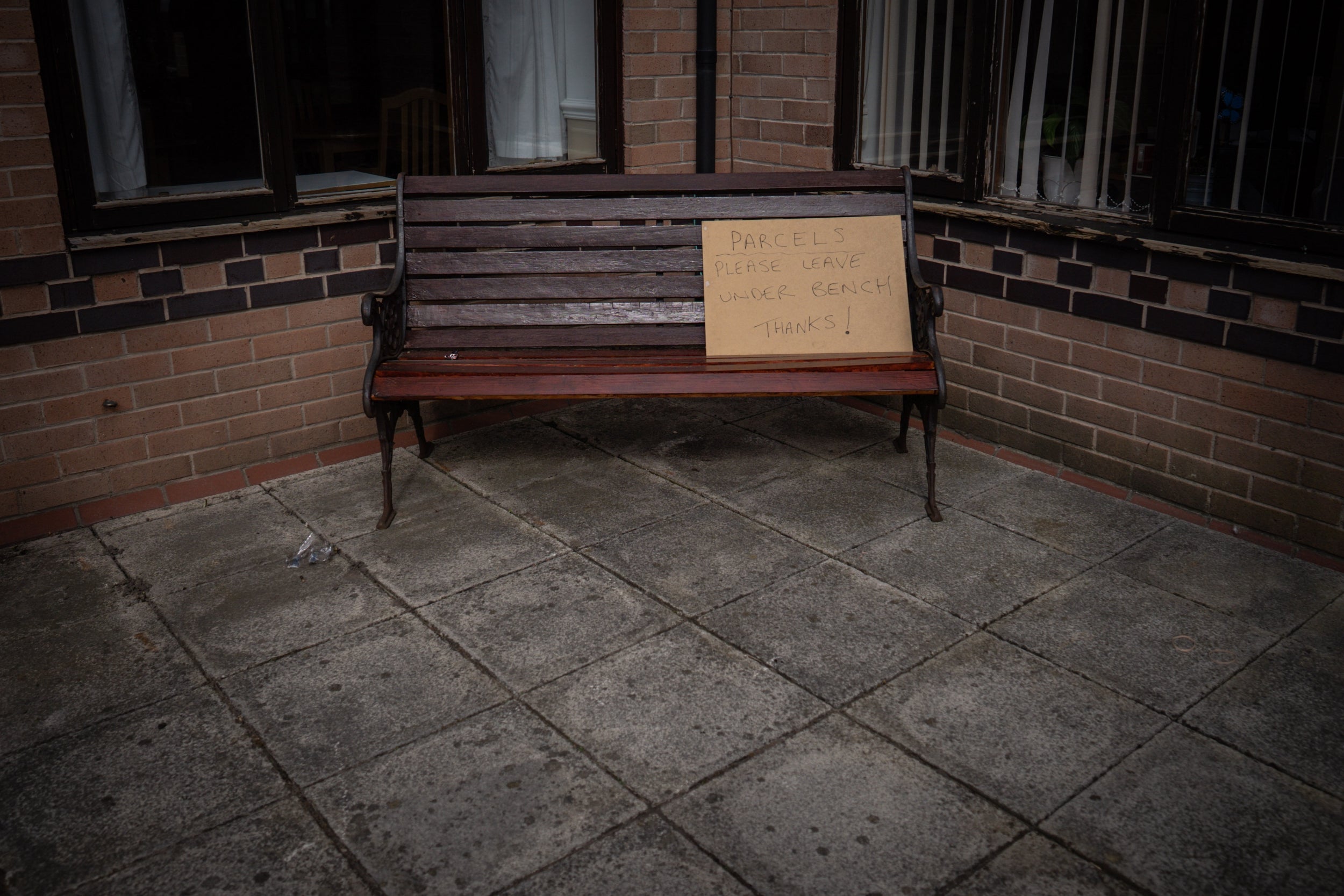
18/18
A bench at Newfield Nursing Home
Tom Maddick/SWNS

1/18
Jack Dodsley, 79, with a carer in PPE at Newfield Nursing Home
Tom Maddick/SWNS

2/18
Jackie Wilson, a healthcare assistant, wearing PPE before going into rooms
Tom Maddick/SWNS

3/18
Jack Dodsley, 79, speaks to a carer at Newfield Nursing Home
Tom Maddick/SWNS

4/18
Carers working at Newfield Nursing Home
Tom Maddick/SWNS

5/18
A care worker wearing PPE opens a drink carton
Tom Maddick/SWNS

6/18
Jack Dodsley, 79, sits with a carer
Tom Maddick/SWNS

7/18
Jack Dodsley, 79, with a carer in PPE
Tom Maddick/SWNS

8/18
A care staff member wearing PPE
Tom Maddick/SWNS

9/18
A staff member at Newfield Nursing Home looks after a resident
SWNS

10/18
A carer wearing PPE uses a speaker
Tom Maddick/SWNS

11/18
A carer helps Jack Dodsley, 79, from his chair
Tom Maddick/SWNS

12/18
A carer wearing PPE helps Jack Dodsley, 79
Tom Maddick/SWNS

13/18
A staff member at Newfield Nursing Home
Tom Maddick/SWNS

14/18
A carer brings food to a resident at Newfield Nursing Home
Tom Maddick/SWNS

15/18
Jack Dodsley, 79, with a carer in PPE
Tom Maddick/SWNS

16/18
A staff member puts on PPE at Newfield Nursing Home
Tom Maddick/SWNS

17/18
Jackie Wilson, a healthcare assistant, puts on PPE before she enters a room
SWNS

18/18
A bench at Newfield Nursing Home
Tom Maddick/SWNS
A Whitehall source said: “If one of the lessons from the Isle of Wight is we can only do this nationally and regionally doesn’t work then we will look at that.
The latest news on Brexit, politics and beyond direct to your inbox
“If there’s a sense we could do it better regionally then we will. It is part of what we are looking at.”
The app has been downloaded by more than 72,300 of the Isle of Wight’s 140,000 residents, taking it well over the 60 per cent take up rate needed for the app to be effective. In the wider population, this would equate to around 80 per cent of all smartphone users.
On the Isle of Wight, NHS and council staff were emailed to inform them the app was available to download, before the wider public were also informed by letter and through local media campaigns.
Early technical issues being ironed out include problems with Huawei handsets and older phones, Dr Geraint Lewis, who is leading the development of the app, admitted earlier this week.
The app has triggered privacy row due to its centralised design, which means the matching between infected person and contact will take place on a central database. Insiders believe this will allow the NHS greater insight into the spread, such as if there are spikes of cases in certain areas.
Critics favour the decentralised model developed by Google and Apple, where the exchange happens on the phone, rather than on a central database.
A Department of Health and Social Care spokesperson said its aim “remains to roll out the app more widely later this month”.
Asked about the Isle of Wight pilot, the spokesperson said: “The app launched at the start of May, with the aim of completing the pilot in around 3 weeks.
“This is the initial phase of a national rollout that will allow us to learn about and improve the service as it is rolled out across the UK.
“Like any high quality app, we will continually evolve and improve it over the coming weeks.”



